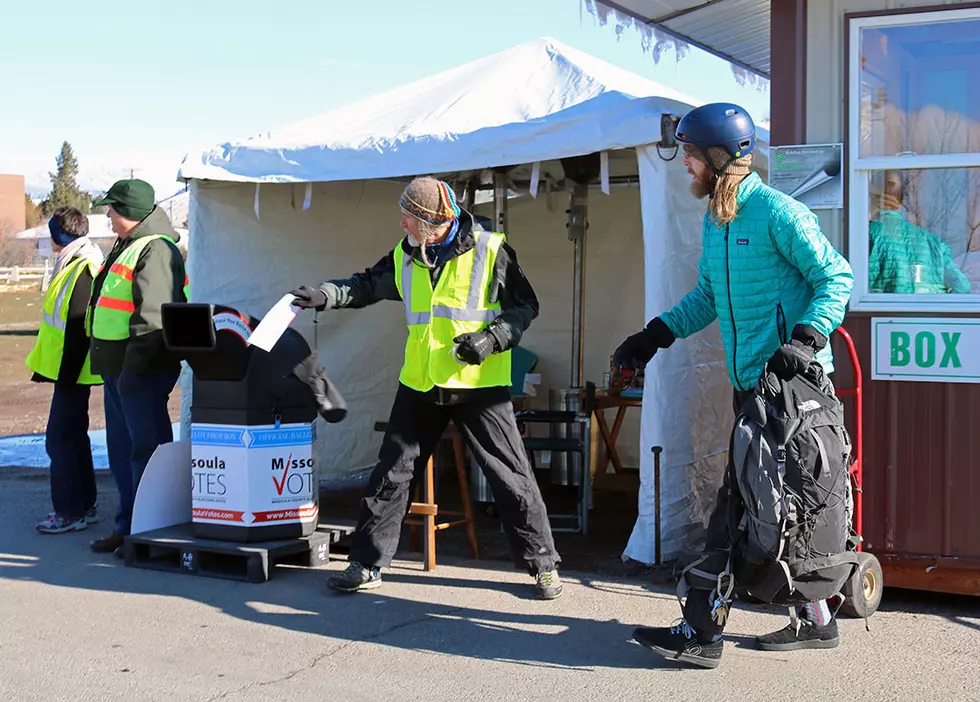
Montana Dems: New laws working together to prevent youth vote
(Daily Montanan) Data analyst Jacob Hopkins of the Montana Democrat Party has crunched the numbers, and he told a Yellowstone County District Court on Friday that a trio of new laws will likely work in concert to effectively stifle the younger voters across the state.
He provided the testimony in a trial that challenges the constitutionality of three bills passed by the 2021 Legislature which deal with Election Day voting registration, paid ballot collection and acceptable forms of identification.
Hopkins’ theory is that a higher-than-average percentage of young voters, usually classified as less than the age of 35, use Election Day registration and voting. Further, that changes to the identification requirements makes the process even more difficult for young voters, and that money spent for “get-out-the-vote” efforts and ensuring that people make it to the polls has been stifled by House Bill 530, which has prohibited paid ballot collectors.
Hopkins’ testimony was part of the fifth day of the trial in front of Judge Michael G. Moses, and it will continue through next week. At issue are the fate of the three bills and whether they interfere with Montanans’ voting rights which are protected by both the state and federal constitution.
“(Election Day Registration) has been the failsafe for voters,” Hopkins testified in court. “Those voters tend to be younger.”
Hopkins said that the information about which groups rely most heavily on Election Day, or same day, registration is publicly available and an analysis of which people use it is easy to find.
“We see who has been registered then and we look at the individual level,” Hopkins said. “They are usually college campus precincts and there are big numbers in precincts around them. There are a lot of numbers from those precincts and there’s heavy registration.”
Identity concerns
Hopkins wasn’t the only person to testify on Friday. Shawn Reagor of the Montana Human Rights Network, spoke about the challenges Senate Bill 169 imposes upon the transgender community. He said that because a driver’s license or other documents may not reflect the voter’s identity, they may be turned away or denied a ballot.
Senate Bill 169 changes the identification requirements for Montana voters, including requiring a picture and name identification that matches, and that may not always be possible Reagor said. Also, SB169 makes college and university-issued identification secondary instead of primary.
Reagor also said that using student identification can be easier because changing a driver’s license or social security card can take weeks and require multiple steps. Moreover, many colleges and universities will issue a new identification card for a nominal charge, if any.
Students may also have a significantly harder time registering to vote, Reagor said, because the other forms of identification can be equally onerous. For example, if a college student doesn’t have a driver’s license, they may also lack a local bank account, and if they live in a dormitory, they would lack leases or utility bills, other forms of identification acceptable.
Staying on the right side of the law
Hopkins also testified in court that the Montana Democrat Party, which also performs ballot collection and ride-sharing to the polls, has stopped some of those activities because of the new laws. Earlier this week, Western Native Voice, another one of the plaintiffs in the suit, as well as the Blackfeet Nation, told the court they’ve all curtailed voter registration activities because they did not want to run afoul of the new law.
“We want to stay on the correct side of the law and not open ourselves to liability,” Hopkins said.
However, attorneys for Secretary of State Christi Jacobsen, who is defending the lawsuit, pushed back on all those witnesses, pointing out that because of the lawsuits that no one knew what the finals rules adopted by the state would become.
Attorneys have argued the lawsuits may be premature because the state has yet to adopt rules that definitively state whether organizations like Western Native Voice or the Democrat Party would be prohibited from paid ballot collecting.
